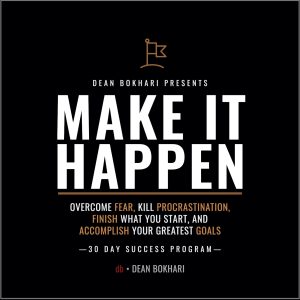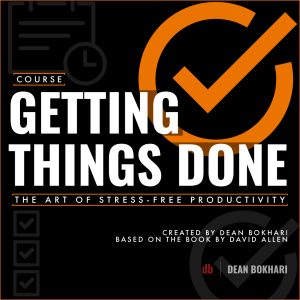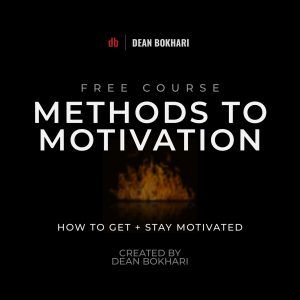If you take a stone and toss it into a pond, what happens? As soon as the stone strikes the surface of the water, you get a series of ripples or waves, which spread outwards in a circular direction, creating larger and larger ripples. The larger the stone, the larger the ripples…
Podcast Version: Inputs vs Outputs
Now, if you were to take two stones of different sizes and weights, and tossed them both into a pond at the same time, they’ll both create a series of ripples, which will eventually merge with one another…
When the two sets of ripples converge, there seems to be a bit of a struggle as to which one overcomes or passes the other.
If the ripples are both the same size, they seem to stop or neutralize each other when they collide—and the ripples just disappear.
But if one set of ripples is larger than the other, the larger set sweeps over the smaller set and creates waves in the wake of the smaller ripples.
Let’s consider this analogy in relation to our own thought-patterns and mental impulses…
Imagine you’ve got two stones in each hand.
- The stone in your left hand is labeled, “failure”.
- The stone in your right hand is labeled, “success”.
If your “failure” stone is heavier, then its ripples will sweep over the ripples created by your stone labeled “success.”
But if your stone of “success” is heavier, it’ll sweep over the ripples created by the “failure” stone.
The weight of each stone is in direct proportion to the amount of thought and attention you give its label.
How heavy are your stones?
How much time do you dedicate to thinking about failure?
How much time do you dedicate to thinking about how you compare to other people?
How much time do you dedicate to thinking about how you’re not good enough?
And how much time do you dedicate to improving and enriching your life?
I’m here to tell you that if your “failure” stone is bigger and heavier than your stone of “success” then it’s time to make some drastic changes, because the ripples you’re creating will not help you become the person you’re capable of becoming.
If you want your stone of “success” to be heavier than your stone of “failure” then an input plan is one of the most practical ways in which to make it happen.
Inputs vs outputs
We each have the power to change the direction of our lives by altering our thoughts, attitudes, and actions.
What we consume on a daily basis—our inputs—holds a disproportionate amount of influence over what we think, how we feel, and how we behave.
Some examples:
- If you sit around watching Keeping up with the Kardashians all day long and wonder why you feel like you’re not good enough, then that might be why!
- If you’re constantly scrolling through your Facebook feed and comparing your life with your friend from high school who’s in a perfect relationship, just bought a purple Lamborghini, and has a six pack so defined you could wash your T-shirt on her torso—and you’re constantly feeling depressed and less-than, then that might be why!
- If all you do is watch the news—which is predicated on scaring the shit out of you and displaying everything that’s wrong about the world—and you’re wondering why you’ve got such a negative outlook on life, then that might be why!
It’s all about your inputs vs outputs.
STOP wasting your time on inputs that distract you, diminish you, and depress you…
…and START investing your time on inputs that move your life forward and help you flourish, that motivate you to make meaningful moves towards your goals and ambitions.
And here’s the good news: You can control your inputs—you can control what enters your mind on a regular basis.
Create an input plan.
Assess your inputs by looking at all the stuff you’re consuming in your life: media, books, internet, conversations, etc.
If 80% of this content is not moving you forward in life, arrange yourself such that they are.
Your input determines your output. You can program yourself to do better and be better by choosing high quality inputs which will lead to high quality outputs—the actions that help you thrive and succeed.
Here are some ideas for creating an input plan to reshape your mind towards growth and success.
Actionable insight(s):
- Ensure 80% of your inputs are growth-oriented. I follow an 80/20 ratio when it comes to my input: 80% of what I consume is what I believe to be quality content that helps me improve my life and achieve my goals. Stuff that keeps me sharp, stuff that keeps me growing. Things like books, audiobooks, and podcasts on topics I care about. Business and self-improvement seminars. 20% of what I consume is in the “whatever” category—which involves stuff like binge-watching House of Cards or listening to Kanye West.
- Build up your library with physical and audiobooks. Create a reading schedule. Listen to audiobooks on your commute. Always be feeding your mind.
- Stay away from negative people with negative inputs. Do not allow people to dump negative thoughts into your mind. Period. Don’t allow it. Tell them you won’t accept their negativity or keep those people at a distance.
- Start your day with inputs that empower you. When you wake up each morning tell yourself “it’s a great day to take advantage of the opportunities the world has to offer.” Be excited about waking up. Start your day with enthusiasm. Do this in the first part of the day before any negative messages have a chance to enter your mind. Fill your brain with powerful, positive thoughts first.
- Turn your positive inputs into positive outputs. Feed your mind with quality, good, clean, powerful, positive thoughts and things consistently and daily. Never stop. Don’t just consume the information, but learn it until it becomes a part of you by transforming what you consume into what you create. The ultimate goal of an input plan is to generate outputs that help you become a better version of yourself. The inputs should lead to actions that lead to a better quality of life.
Let me cap this discussion off with a few insightful words on inputs vs outputs by the original gangster of motivational speaking, Zig Ziglar:
“Your input determines your outlook. Your outlook determines your output, and your output determines your future.”



